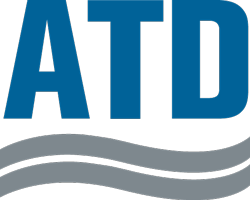California’s ZEV and Truck Emissions Regulations Go Too Far Too Fast
Members of Congress should support CRAs to disapprove EPA’s granting of California waivers (H.J.Res. 87/S.J.Res. 46 & H.J.Res. 89/S.J.Res. 47)
ISSUE
Two California Air Resources Board (CARB) mandates have had a detrimental impact on truck dealerships and fleets in the state and will lead to national disruptions in the truck market. The Environmental Protection Agency’s (EPA) approval of Clean Air Act waivers for California’s Advanced Clean Trucks (ACT) and Omnibus Low Nitrogen Oxide (NOx) regulations allows California and “opt-in” states to enforce their finalized regulations. Ten states (CO, MA, MD, NJ, NM, NY, OR, RI, VT, WA) have adopted California’s ACT zero emissions vehicle (ZEV) sales mandate beginning in 2024, and all these states minus Maryland also follow California’s Omnibus Low NOx regulation. ATD strongly supports Congressional Review Act (CRA) joint resolutions of disapproval for CARB’s ACT and Omnibus Low NOx Rules. Members of Congress should cosponsor the CRAs to disapprove the ACT Rule (H.J.Res. 87/S.J.Res 46) and the Omnibus Low NOx Rule (H.J.Res. 89/S.J.Res 47).
BACKGROUND
The ACT Rule requires truck manufacturers to sell an increasing percentage of zero-emission medium- and heavy-duty vehicles beginning in 2024 depending on the vehicle class and type and eventually reaching 100% ZEV sales by 2036. In 2023, the EPA granted a waiver to California to implement its original ACT rule. The rule went into effect on January 1, 2024. CARB’s gradual banning of the diesel engine is happening faster than what should replace it – a technologically viable, affordable ZEV with accompanying charging and refueling infrastructure. A 2024 Clean Freight Coalition study conducted by well-known automotive firm Roland Berger found that full electrification of the U.S. commercial truck fleet would require nearly $1 trillion in electric infrastructure investment and grid network upgrades to meet demand. As a result, truck dealers in California and opt-in states will soon be unable to meet their customers’ truck purchase needs due to these regulations.
The Omnibus Low NOx Rule established new diesel tailpipe emissions beginning in 2024 that would increase the cost of a new Class 8 tractor in California and other opt-in states by $10,000. These standards are also out of sync with EPA’s 2027 Low NOx regulation.
Affordability remains a major hurdle to adoption of clean diesel and zero emission trucks. A typical electric Class 8 truck costs roughly $400,000, and the average cost for a comparable diesel-powered vehicle is $180,000. Additionally, the average range for a Class 8 electric truck is about 150 miles. In comparison, an equivalent diesel truck can travel 1,500 miles without refueling.
CARB’s mandates have caused major market disruptions as Ford, Ram, and Isuzu have stopped selling specific models in California. These mandates will likely have the unintended effect of delaying new truck purchases and force buyers to hold onto their older trucks longer, delaying the fleet turnover necessary to achieve environmental goals.
KEY POINTS
- ZEV trucks are in the early stages of deployment. ZEV technology continues to be tested in real-world conditions to understand operational and technological concerns. Two ZEV trucks would be required to move the same amount of freight as one diesel truck.
- Both CARB regulations will result in a decline of new truck sales. Due to the regulations, California truck dealers have already experienced on average 50% reduction in 2024 ICE sales vs 2023 ICE sales due to truck rationing and lack of a ZEV truck market.
- CARB estimates th/media/16735at over 43,000 jobs in just California will be eliminated due to their Omnibus Low NOx rule alone. Truck dealers in California will be faced with tough decisions if sales continue to decline.
STATUS
In April, Rep. John James (R-Mich.) introduced H.J.Res. 87 and Sen. Deb Fischer (R-Neb.) introduced S.J.Res. 46 to disapprove the ACT waiver. Rep. Jay Obernolte (R-Calif.) introduced H.J.Res. 89 and Sen. Markwayne Mullin (R-Okla.) introduced S.J.Res. 47 to disapprove of the Omnibus Low NOx rule waiver. These privileged resolutions only require a simple majority to pass both chambers.
Contacts


